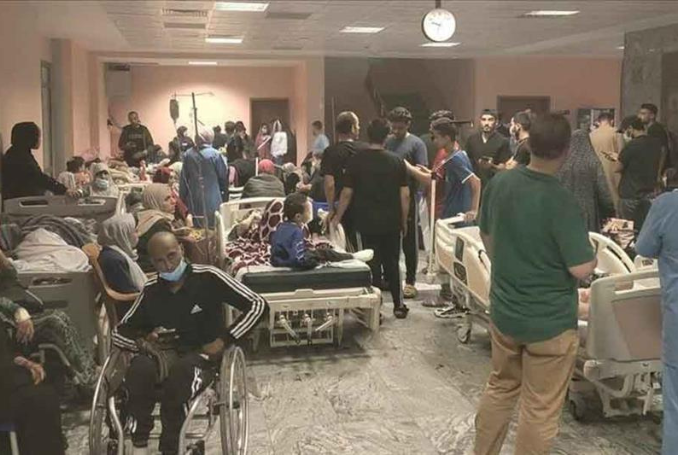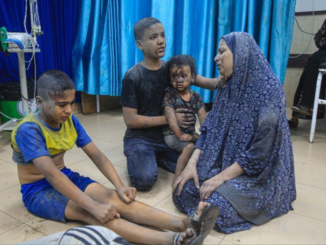
The United Nations Relief Chief, Martin Griffiths, has warned that the health sector in Gaza “is being slowly choked off” as hospitals continue to come under fire.
“And what happens when the health system collapses?” Griffiths asked in a post on X, on Wednesday.
He said: “Pregnant mothers can’t deliver their babies safely. Children can’t get vaccines. The sick and wounded can’t get treatment. People die.”
“This war needs to end,” the UN chief stressed.
LIVE BLOG: South Africa’s ICJ Case against Israel over Gaza Genocide
He also expressed his grief at the “devastating news” of four members of the Palestine Red Crescent ambulance crews who were killed in an Israeli airstrike while on duty on Wednesday. Their ambulance was hit on Salah al-Din Street, at the entrance to Deir al-Balah, in central Gaza.
“The rules of war are clear: Parties must protect civilians, including humanitarian workers,” Griffiths said. “These rules must be upheld.”
He reiterated that “the fighting must end.”
Denial of Access to Northern Areas
Meanwhile, the United Nations Office for the Coordination of Humanitarian Affairs (OCHA), said on Wednesday that intense bombardment of the Gaza Strip continues to cause casualties and destroy and damage critical civilian infrastructure.
It said that “humanitarian partners continue to raise concerns over repeated denials of access to areas north of Wadi Gaza.”
‘Israel is Terrorizing Patients’: Al-Aqsa Martyrs Hospital Targeted with Drones
They are also increasingly warning of a potential collapse of health services in Deir al Balah and Khan Younis, where hostilities have intensified, resulting in more casualties, insecurity, and impediments to aid delivery, the OCHA said.
The ongoing hostilities in Deir Al Balah and Khan Younis – coupled with evacuation orders in nearby areas – are putting three hospitals at risk of closure: Al Aqsa, Nasser and European Hospitals.
“Our humanitarian partners say that as of yesterday, just one-fifth of the 5,000 beds needed to meet trauma and emergency needs in Gaza are available. And out of 77 primary health centers, more than three quarters are not functioning – leaving many people in Gaza without access to basic health services,” the statement said.
High Risk of Communicable Diseases
Some 350,000 people with chronic illnesses and about 485,000 people with mental health disorders continue to experience disruptions in their treatments.
The statement added that those internally displaced by the conflict in Gaza – some 1.9 million people – are at high risk of communicable diseases due to poor living conditions, overcrowding of shelters, and lack of access to proper water, sanitation and hygiene facilities.
PRCS Urges Protection for Al-Amal Hospital amid Israeli Attacks
“Our humanitarian partners are working to scale up sanitation services to support internally displaced people in Rafah and Khan Younis, but aid organizations continue to face major operational challenges, including material shortages, logistical difficulties in transporting supplies, and limited space for latrine construction due to severe overcrowding in southern Gaza.”
The combination of water trucking, desalinated water, and the restoration of one of three main water supply lines late last month has yielded just 7 per cent of water production in Gaza, compared with the supply prior to October 7, the statement said.
According to Gaza’s Ministry of Health, 23,357 Palestinians have been killed, and 59,410 wounded in Israel’s ongoing genocide in Gaza starting on October 7.
Palestinian and international estimates say that the majority of those killed and wounded are women and children.
(The Palestine Chronicle)








